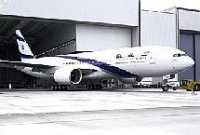According to a new research by the Bank of Israel, 20 business groups, nearly all of them family-owned, control 160 publicly-traded companies with a 40 percent segment of the market.
The Bank of Israel reports that Constantin Kosenko of the Research Department has completed a study that discusses the evolution of business groups in Israel and their effect at the corporate and at the macroeconomic levels.
The study is based on the ownership data of 650 companies that were traded on the Tel Aviv Stock Exchange between the years 1995-2005. Significant historical evidence was found of the existence of business groups in Israel which evolved against the background of government involvement in business sector activity and in the financial markets, the rapid development of the economy, geopolitical shocks and the rise of the ruling elites, who were replaced no less than three times since the birth of the state.
Based on the sample, it was found that during the period reviewed, 20 business groups, nearly all of them family-owned, controlled 160 publicly-traded companies with a 40 percent segment of the market. The market segment of the 10 largest groups was among the highest in the western world, and was estimated at 30 percent of the market.
An observation of the structure of business groups in Israel shows a clear separation between the ownership rights in the affiliated companies and the control in them: It was found that 80 percent of affiliated companies have a pyramid holding structure and that the actual control over these companies, by the unique owners of the groups, is achieved by means of the control chain and via relatively limited capital rights. The holdings of the business groups in Israel were found to be widely diversified among the different sectors of the economy, but with a heavy emphasis on the financial sector where 50 percent of companies can be classified as affiliated to business groups.
The study found that companies affiliated to business groups in Israel tend to be notable for considerable maturity, from the aspect of stock exchange age and from the aspect of asset volume, lower growth, lower investment in R&D and a higher risk than unaffiliated companies.
The econometric analysis presented in the study revealed that the mere fact of affiliation to a business group in Israel has no impact on the affiliated company’s profitability as measured by a number of accounting parameters. However, the financial value of affiliated companies is significantly less than that of unaffiliated companies. These findings are indicative of a negative market premium for affiliated companies.
The study presents theories regarding the existence of the negative premium and finds the internal group markets to be inefficient. The study finds the potential for exploiting the small number of investors, family involvement in management or a probability of the group’s liquidation because of a disruption in the relationships between its owners, as possible reasons for this phenomenon.
Research: 20 business groups control 40 percent segment of the market
According to a new research by the Bank of Israel, 20 business groups, nearly all of them family-owned, control 160 publicly-traded companies with a 40 percent segment of the market
21.04.08 / 00:00
•
More articles that may interest you

Haifa port workers set up a cooperative to buy share of the port

Long delays at the Nitzana Israel Egypt border crossing

Izzy Borovich to sell Knafaim stake to his brother

New civil aviation agreement was signed between Israel and Italy

El Al considering to end freighter flights to Asia

Ashdod Port's board calls for an intervention by national ports reform committee
More news from Industry & Trade Section
>MAI: Sale of counterfeit and out of date pharmaceuticals in 2007 was NIS 100-130 million/14.04.08
>Bank of Israel forecasts slower economic growth in 2008/07.04.08
>Cherry Farmers seek permission to Export to Syria/07.04.08
>Israel Export Institute: exports will have dramatic slowdown in 2008/07.04.08
>2007 Net profit drops at Israel Corp. as expenses rise/07.04.08
>Cosco: productivity at Ashdod port has increased due to new service arrangements/07.04.08
>Israel officially joined OECD Development Center/31.03.08
>Israel's ‘Apple Diplomacy’ with Damascus/31.03.08
>Haifa Port gets its first fixed container scanner/31.03.08
>CBS: Israel's Economy grew by 5.3% in 2007/24.03.08
